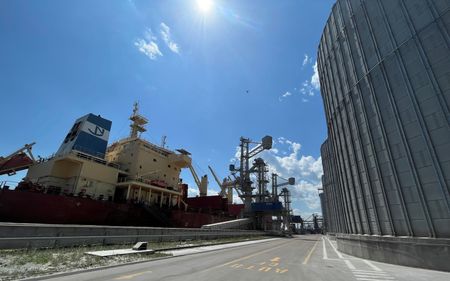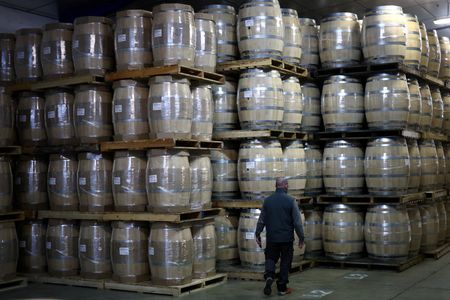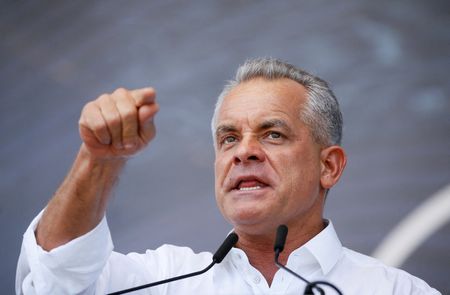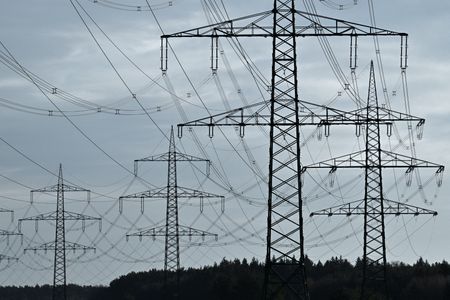By Luiza Ilie and Jason Hovet
BUCHAREST/PRAGUE (Reuters) -Romania said on Monday a 15% U.S. import tariff on European goods would mean a small hit to central Europe’s second-largest economy, while export-reliant Slovakia hailed the U.S. trade deal as a “good result”.
Sunday’s framework trade agreement between the United States and the European Union staved off the threat of a trade war, which has loomed over the region’s economies, among the EU’s most dependent on trade.
Romania’s largest employers’ association Concordia – which represents 20 industries accounting for 30% of Romania’s output – told Reuters it estimated the tariffs could now shave up to 0.2% off the country’s growth.
“Economic growth in the euro zone will be affected, with estimates from international institutions showing a possible reduction in the growth rate by 0.3%-0.4%, which would mean a reduction in economic growth in Romania by 0.15%-0.2%,” Concordia macroeconomist Iulian Lolea said.
He said a firmer euro against the dollar also made European goods less competitive in the American market.
Romania’s economy grew just 0.8% last year, its slowest rate since the COVID-19 pandemic, and government efforts to rein in the EU’s highest budget deficit from unsustainable levels could also dent growth prospects.
The trade deal sets a 15% baseline tariff on imports, including cars, a mainstay of central European exports, which had faced 27.5% in customs duties before. That level is nonetheless still sharply up from a pre-existing 2.5%.
The Czech Automotive Industry Association said the 15% levy was not low but “the threat of further escalation has been averted and a certain degree of predictability has been restored”.
Romanian Prime Minister Ilie Bolojan said Sunday’s deal eliminated some uncertainty weighing on transatlantic trade.
Prime Minister Robert Fico of Slovakia, whose country’s share of goods exports as a percentage of national output is the highest in the EU, called the trade deal a “good result”, while waiting to see details on energy and military purchases.
“We will all be interested in what the EU’s commitment to buy U.S. energy for $750 billion and higher investments in American arms entails,” Fico said.
Hungary’s Prime Minister Viktor Orban sharply criticised European Commission President Ursula Von Der Leyen for what he said was a poorly negotiated deal.
“This is not an agreement … (President) Donald Trump ate (European Commission President) Von der Leyen for breakfast.”
(Writing by Gergely Szakacs Editing by Giles Elgood)











